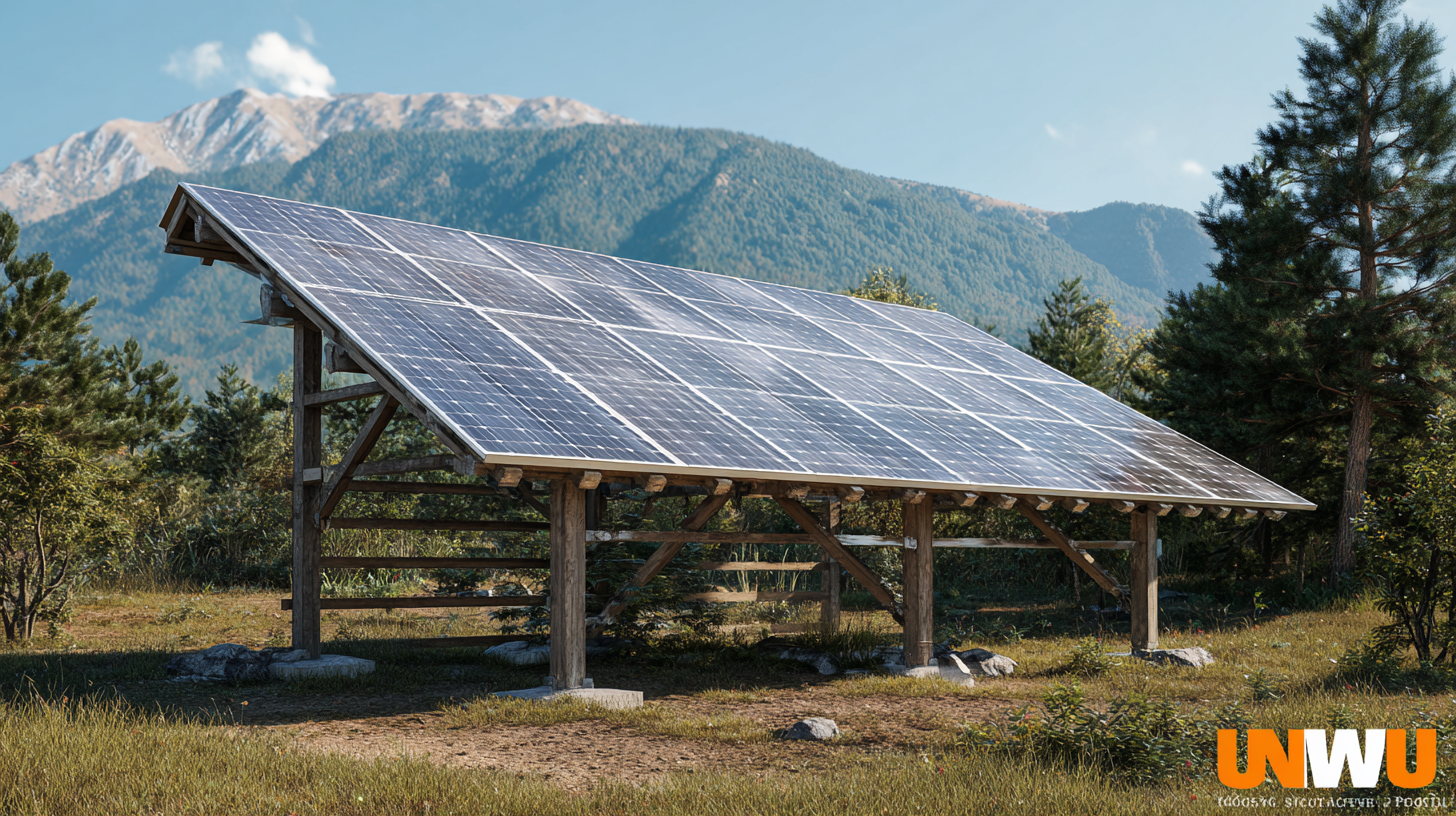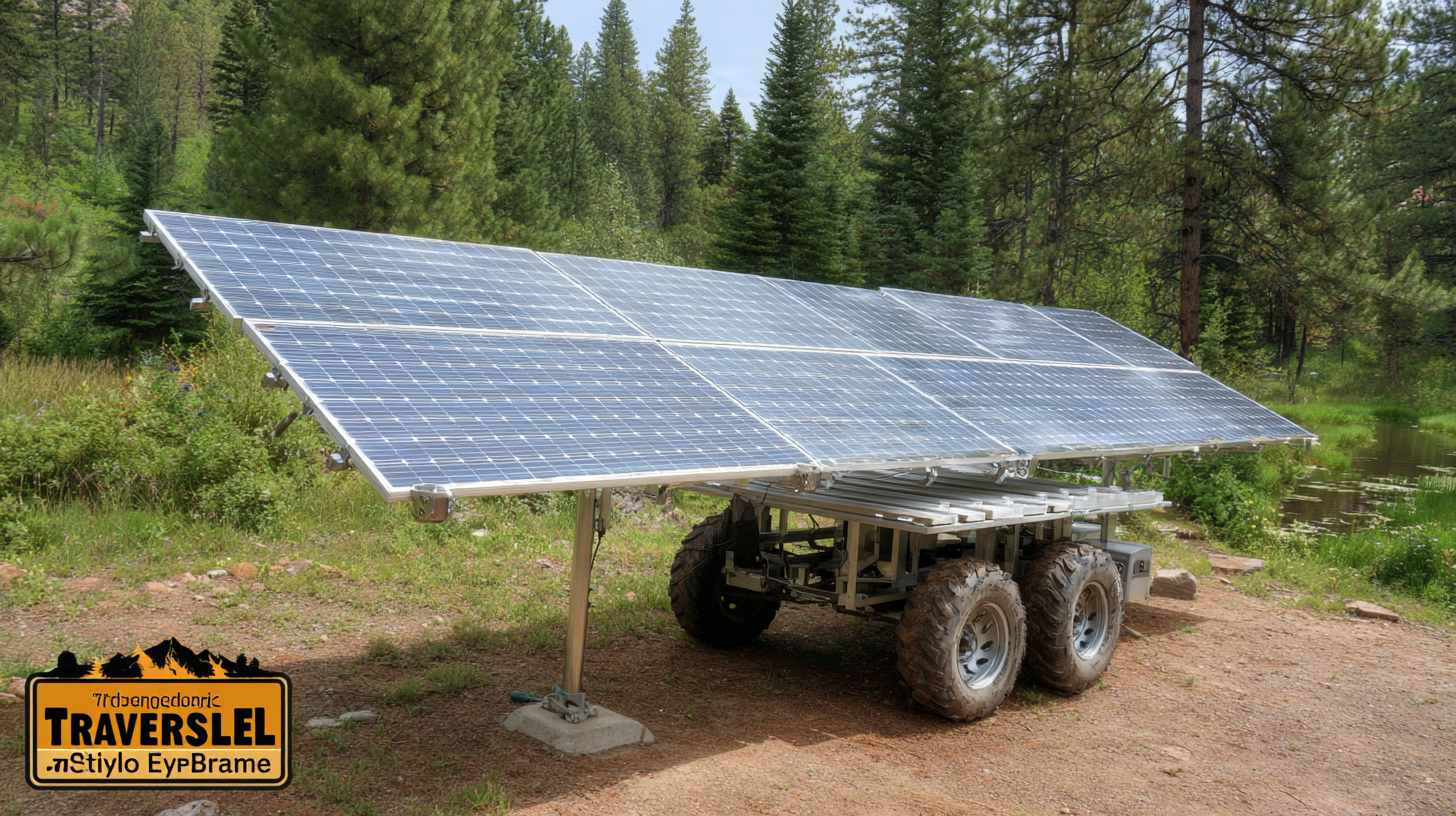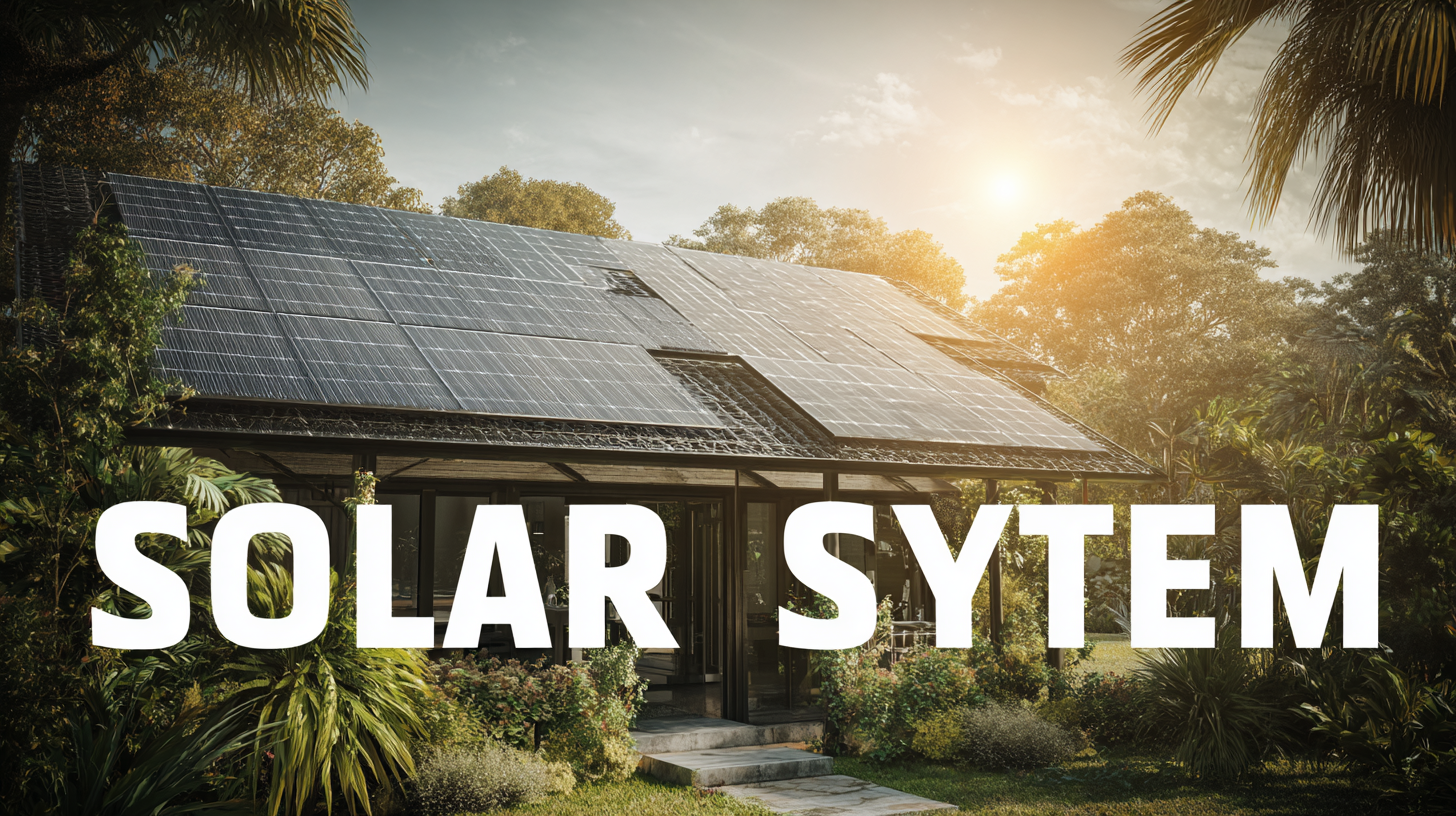Tel : 94870 36000, 94860 36000, 94890 36000
Exploring Innovative Alternatives to Best Solar Panel Off Grid System Solutions
As the world increasingly shifts towards sustainable energy solutions, the quest for efficient and innovative alternatives in solar technology has never been more critical. The Solar Panel Off Grid System represents one of the most promising pathways for individuals and communities seeking independence from traditional energy sources. With the projections for the industry's technological trends leading up to 2025, this blog explores cutting-edge developments that are redefining how we harness solar power.

From advancements in efficiency and storage capabilities to emerging materials and smart technology integration, the landscape of solar energy is rapidly evolving. This ultimate guide aims to provide insights into the best practices and innovative solutions available, empowering readers to make informed decisions for optimized energy independence while highlighting the potential of Solar Panel Off Grid Systems in realizing a sustainable future.
Table of Contents
[Hide]
Exploring the Benefits of Off-Grid Solar Panel Systems for Sustainability
Off-grid solar panel systems are gaining attention for their significant contributions to sustainability, particularly in rural communities. These systems enable households to harness the sun's energy, reducing reliance on fossil fuels and lowering carbon footprints. Recent research underscores how renewable energy, including solar, plays a crucial role in achieving Sustainable Development Goals (SDGs), especially in providing affordable and clean energy. Off-grid setups not only empower individuals but also foster energy independence, contributing to long-term environmental benefits.
Tip: Consider starting small by installing a few solar panels for essential household needs. This approach allows you to gradually understand the technology and its benefits without a heavy initial investment.
Moreover, the integration of off-grid solar systems with battery storage solutions enhances reliability, ensuring a continuous power supply even during low sunlight periods. By using advanced technologies, these systems can now be implemented in various configurations to meet the diverse needs of rural communities, creating resilient energy infrastructure.
Tip: Research local incentives or grants that could support your shift to off-grid solar solutions. They can significantly reduce the upfront costs, making sustainable energy more accessible.
Key Technologies Revolutionizing Off-Grid Solar Solutions in the 21st Century
The 21st century has witnessed a remarkable revolution in off-grid solar solutions, driven by advancements in key technologies that are reshaping energy independence for many. One such innovation is the rise of high-efficiency solar panels, which maximize energy capture even in limited sunlight conditions. Combining these panels with energy storage systems, such as lithium-ion batteries, allows users to not only produce but also store energy, making it available during periods of low sunlight or at night.

Furthermore, smart solar inverters are transforming how off-grid systems operate. These devices intelligently manage the energy flow, optimizing the balance between energy consumption and production. By integrating with modern energy management apps, users can monitor their energy usage in real-time and adjust their consumption according to solar production, thus enhancing overall efficiency. Advanced tracking systems that follow the sun’s path also contribute to improved energy yields, proving that technology is key to unlocking the full potential of off-grid solar solutions.
Integrating Energy Storage: Maximizing Efficiency of Off-Grid Solar Systems
Integrating energy storage into off-grid solar systems is essential for maximizing their efficiency and ensuring energy availability around the clock. According to the International Energy Agency (IEA), energy storage systems can significantly enhance the reliability of solar energy, especially in off-grid applications. By incorporating battery technology, users can store excess energy produced during sunny days for use during nighttime or cloudy periods, addressing one of the main challenges of solar dependency.
When choosing energy storage solutions, consider battery types such as lithium-ion, which are known for their efficiency and longevity. Research by BloombergNEF indicates that lithium-ion batteries have witnessed a 89% reduction in prices over the last decade, making them a more accessible option for off-grid systems. Additionally, integrating smart inverters can further optimize energy consumption by ensuring that the stored energy is used efficiently based on real-time demand.
Tip: Regularly monitor and manage your energy usage patterns to align your consumption with solar production, which helps in maximizing the benefits of energy storage.
Tip: Explore solar panel brands that offer integrated energy storage solutions for a seamless experience that enhances overall system efficiency and user convenience.

Comparative Analysis of Solar Panel Efficiency Ratings for Off-Grid Applications
When considering off-grid solar panel systems, efficiency ratings are a crucial factor that can significantly impact energy production and overall sustainability. In the competitive landscape of solar technology, various panel types, including monocrystalline, polycrystalline, and thin-film, offer differing efficiency levels. Monocrystalline panels often lead the pack with efficiency ratings surpassing 20%, making them an excellent choice for limited space applications. However, polycrystalline panels can present a budget-friendly alternative with slightly lower efficiencies and a larger footprint.
**Tip:** When selecting an off-grid solar panel system, always prioritize panels with higher efficiency ratings if space is limited. This will ensure optimal energy capture, especially in areas with less sunlight.
Moreover, it's essential to consider how these efficiency ratings translate to real-world performance under various conditions. Factors such as shade, orientation, and local climate can all influence the effectiveness of solar panels. For off-grid setups, systems that include microinverters or power optimizers can maximize the energy output from individual panels, allowing them to perform better in less-than-ideal scenarios.
**Tip:** Conduct a site evaluation before installation to identify potential shading issues and optimize the layout for maximum sunlight exposure.
Exploring Innovative Alternatives to Best Solar Panel Off Grid System Solutions
| Solar Panel Type | Efficiency Rating (%) | Weight (kg) | Dimensions (cm) | Cost ($) |
|---|---|---|---|---|
| Monocrystalline | 22.5 | 18.5 | 165 x 99 | 320 |
| Polycrystalline | 19.5 | 20.0 | 165 x 99 | 270 |
| Bifacial | 21.0 | 22.0 | 170 x 100 | 350 |
| Thin-film | 15.0 | 10.0 | 168 x 99 | 200 |
| Building-integrated (BIPV) | 18.0 | 25.0 | Variable | 450 |
Cost-Benefit Analysis: Investment Returns on Off-Grid Solar Systems vs. Grid Energy
When considering off-grid solar systems, a crucial aspect to evaluate is the cost-benefit analysis of investing in such solutions compared to traditional grid energy. Off-grid solar systems present a unique opportunity for individuals and businesses to achieve energy independence, particularly in remote areas where grid access may be limited or non-existent. The initial investment for solar panels, batteries, and inverters can be substantial, but the long-term savings often outweigh these upfront costs. By harnessing free sunlight, users can reduce or even eliminate their electricity bills, leading to a significant return on investment over time.
Moreover, the volatility of traditional energy prices makes off-grid solar systems an appealing alternative. As reliance on fossil fuels continues to pose economic and environmental challenges, solar energy offers a stable, predictable cost model. Evaluating the investment returns should also include potential tax incentives and decreasing technology costs, which enhance affordability and accessibility. Therefore, while the immediate financial commitment may appear daunting, the comprehensive analysis reveals that transitioning to an off-grid solar system is not only a sustainable choice but also a financially prudent one in the long run.

